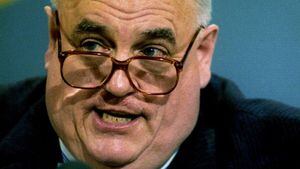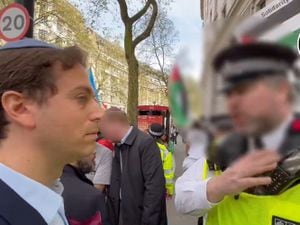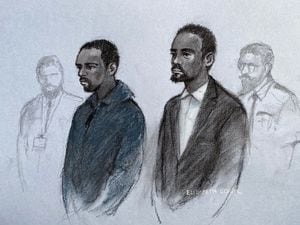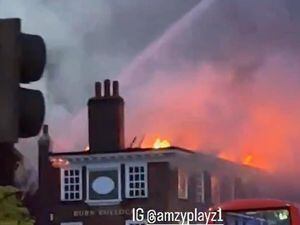MI5 ‘aware of claims prosecutors lied about role in Cyril Smith decision’
The Independent Inquiry into Child Sexual Abuse has begun evidence hearings.

MI5 were made aware of allegations that prosecutors lied about their role in deciding not to prosecute late politician Cyril Smith, an inquiry has heard.
A police investigation into the Liberal MP’s alleged sexual abuse of young boys ended in 1970 when the Director of Public Prosecutions (DPP) concluded it was unlikely to lead to a prosecution.
Sir Norman Skelhorn’s decision in 1970 came despite a senior detective warning the “sordid” accusations against Smith “stood up”, the Independent Inquiry into Child Sexual Abuse heard.
The national inquiry has begun evidence hearings examining how Smith was able to carry out his alleged offences at Cambridge House hostel and the Knowl View residential school in Rochdale.
Lead counsel Brian Altman QC said that the security services were informed that the Rochdale Alternative Press (RAP), which published an investigation into Smith in 1979, had been misled by Sir Norman’s office.
He said of material provided to the inquiry by MI5: “The documents show that the Security Service’s legal adviser was informed of the false representations to the press from the DPP’s office.
“Based upon their review of the information they hold, the Security Service considers they took active steps to ensure that those involved in investigating allegations of child sexual abuse against Smith were made aware of all information of relevance to their inquiries.
“However, given their function was to defend the realm, at that time, and investigation was outside their remit, they simply filed the information related to the false representations that had been made to the press.”
According to the records, the DPP told the publication it had never received police reports of abuse by Smith.
The 29-stone politician was the subject of sex abuse accusations and investigations over decades during his career in Rochdale, but was never prosecuted and received a knighthood before his death in 2010.
No national newspapers reported on Smith’s alleged behaviour despite the 1970 police investigation, which focused on allegations from Cambridge House, and the 1979 RAP report, Mr Altman said.
“This is despite the fact that Cyril Smith did not take any form of action against RAP,” he added.
An investigation into the MP in 1970, the year he first ran for national office, concluded he was hiding behind a “veneer of respectability” to target eight young boys at Cambridge House during the 1960s.
Lancashire Police’s detective superintendent Leach was said by Mr Altman to be “unsparing” in his assessment of Smith in a report to the force’s chief constable.
The report said: “It seems impossible to excuse his conduct over a considerable period of time whilst sheltering behind a veneer of respectability.
“He has used his unique position to indulge in a sordid series of indecent episode with young boys towards whom he had a special responsibility.”
The officer said the allegations, which included that he spanked some boys on the bare bottoms and medically examined others, “stood up”, the hearing was told.
In 1988, when Smith was made a knight, then prime minister Margaret Thatcher had probably been informed of his chequered past, the inquiry heard.
A draft letter from Lord Shackleton on behalf of the Political Honours Scrutiny Committee to the PM directly referred to the police investigation and coverage in RAP and Private Eye.
”One may regret this kind of press reporting,” he said, but the scandal could be given new life if the honour was given.
While it is not clear whether the prime minister received this letter, another letter enclosing the coverage is believed to have been sent to her private secretary in May 1988.
Mr Altman told the inquiry: “I mention this knighthood here for two reasons. First, because it demonstrates that the Lancashire investigation and the RAP article had been considered at the very highest level of politics and seemingly did not prompt more than consideration of the DPP’s decision not to prosecute.
“Second, because it is important to bear in mind the extent to which Cyril Smith continued to involve himself in serious issues related to the welfare of children.
“A knighthood would only have reinforced Smith’s veneer of respectability and power. By way of example, records from a case in 1991 show that he played a pivotal role the removal of a child from his family home. The child in question had behaved sexually towards his eight-year-old sister.
“Rochdale social services were attempting to manage this situation but it is quite clear that it was the involvement of Smith in his capacity as the local MP that was decisive.”





